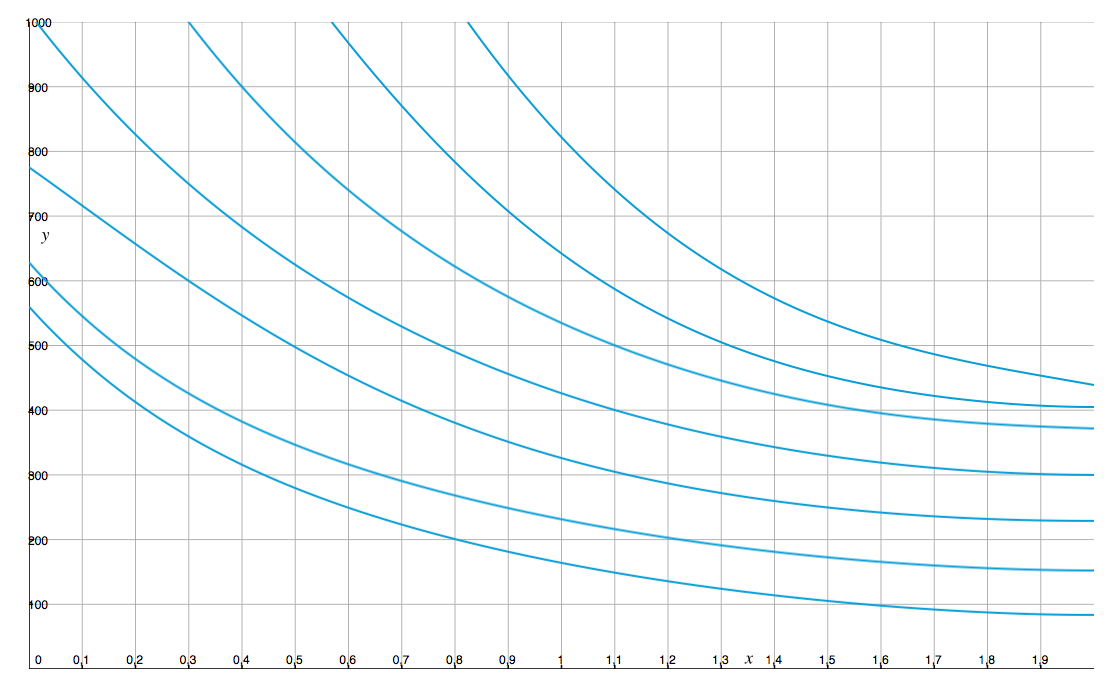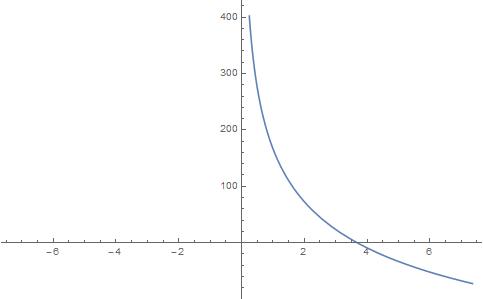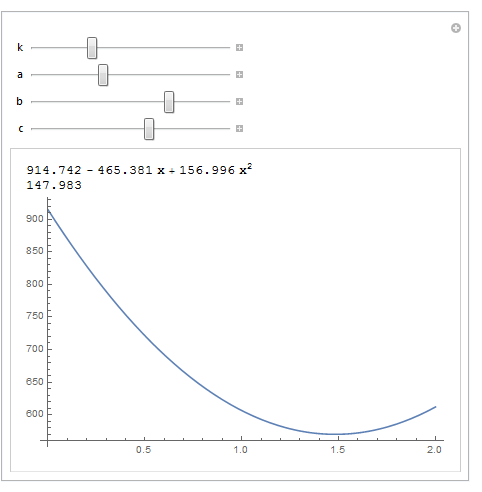I have a diagram with seven curves (each with a different parameter). My goal is to find a function for the family of curves (i.e. a single function not just for the seven parameters, but for all parameters in between).
The values are between 0.3 and 2.0. I manually got the values in 0.1 steps.
These are the points I got:
f50 = {{0.3, 360}, {0.4, 315}, {0.5, 280}, {0.6, 250}, {0.7, 225}, {0.8, 200},
{0.9, 180}, {1.0, 165}, {1.1, 150}, {1.2, 135}, {1.3, 125}, {1.4, 115},
{1.5, 105}, {1.6, 97}, {1.7, 93}, {1.8, 88}, {1.9, 85}, {2.0, 84}}
f100 = {{0.3, 426}, {0.4, 382}, {0.5, 347}, {0.6, 316}, {0.7, 291}, {0.8, 268},
{0.9, 249}, {1., 231}, {1.1, 216}, {1.2, 203}, {1.3,191}, {1.4, 182},
{1.5, 172}, {1.6, 165}, {1.7, 160}, {1.8, 156}, {1.9, 153}, {2., 152}}
f150 = {{0.3, 600}, {0.4, 547}, {0.5, 497}, {0.6, 454}, {0.7, 415},
{0.8, 380}, {0.9, 352}, {1., 326}, {1.1, 305}, {1.2, 287}, {1.3, 272},
{1.4, 260}, {1.5, 250}, {1.6, 242}, {1.7, 236},{1.8, 232}, {1.9, 230},
{2., 229}}
f200 = {{0.3, 750}, {0.4, 683}, {0.5, 625}, {0.6, 574}, {0.7, 530}, {0.8, 490},
{0.9, 456}, {1., 426}, {1.1, 400}, {1.2, 380}, {1.3, 358}, {1.4, 343},
{1.5, 330}, {1.6, 320}, {1.7, 310}, {1.8, 305}, {1.9, 302}, {2., 300}}
f250 = {{0.4, 900}, {0.5, 814}, {0.6, 740}, {0.7, 677}, {0.8, 622}, {0.9, 575},
{1., 535}, {1.1, 500}, {1.2, 471}, {1.3, 446}, {1.4, 425}, {1.5, 408},
{1.6, 395}, {1.7, 386}, {1.8, 380}, {1.9, 374}, {2., 372}}
f275 = {{0.7, 870}, {0.8, 785}, {0.9, 707}, {1., 642}, {1.1, 587}, {1.2, 542},
{1.3, 506}, {1.4, 476}, {1.5, 453}, {1.6, 435}, {1.7, 422}, {1.8, 413},
{1.9, 408}, {2., 405}}
f300 = {{0.9, 915}, {1., 827}, {1.1, 741}, {1.2, 671}, {1.3, 616}, {1.4, 573},
{1.5, 540}, {1.6, 510}, {1.7, 487}, {1.8, 467}, {1.9, 453}, {2., 440}}
I found several functions, that fit one particular curve quite well. What is the next step to find a function for the family of curves for values of x between 0.3 and 2.0?
I didn’t find anything online for this problem, but I admit, that I may not know the appropriate words for a search.
 These are the seven curves I plotted and have the functions for. The parameters are from bottom to top:
These are the seven curves I plotted and have the functions for. The parameters are from bottom to top:
50, 100, 150, 200, 250, 275, 300
How do I find a function with the parameter?



InterpolatingFunctionwork? i.e. is it okay to have a numerical function that gives the curves defined by the data plus a smooth interpolation between those curves? $\endgroup$